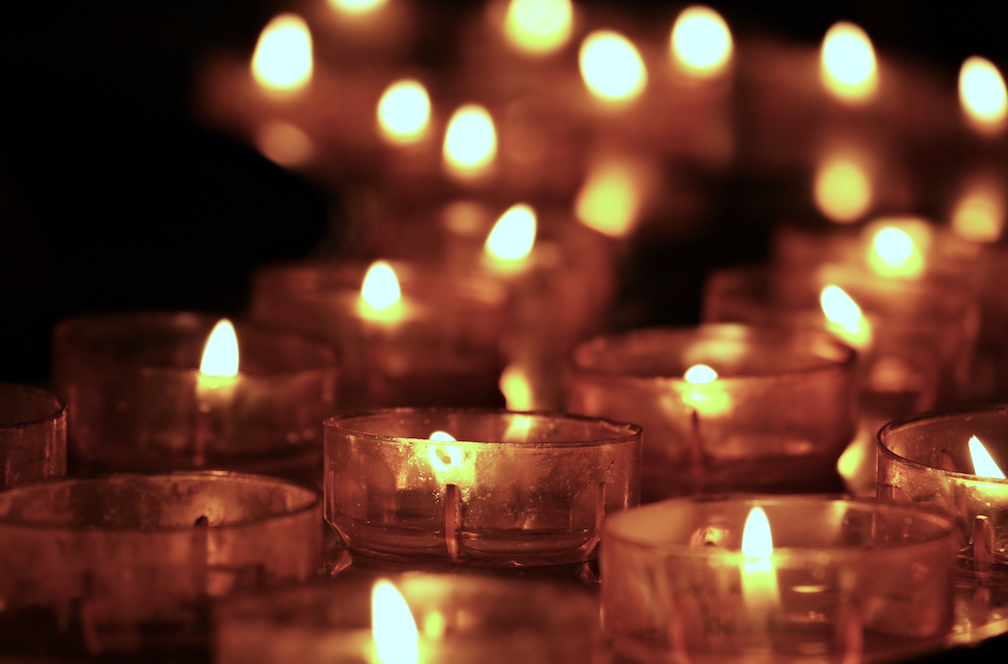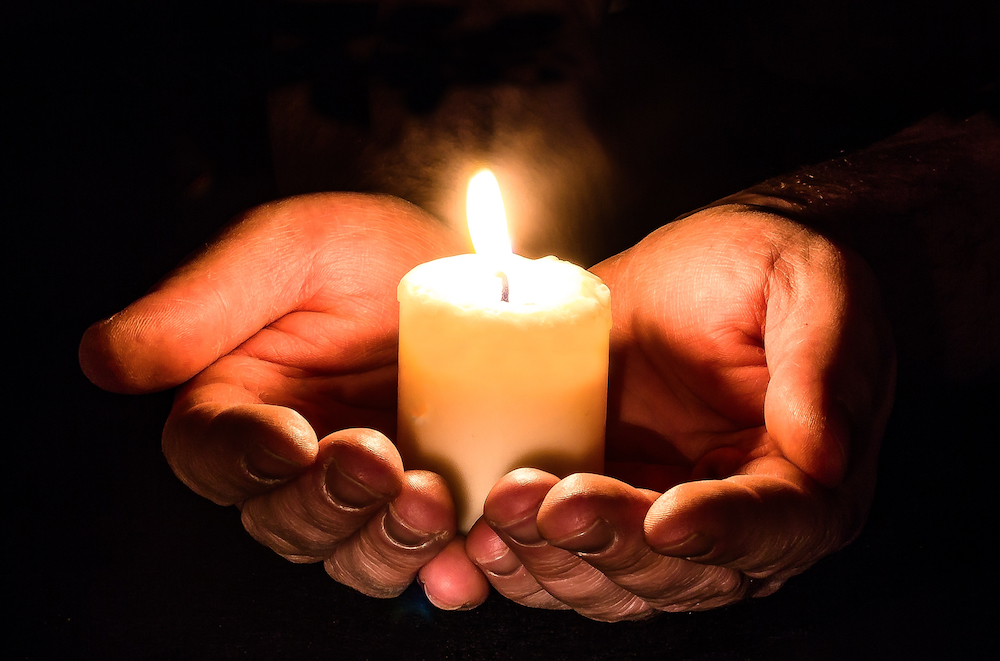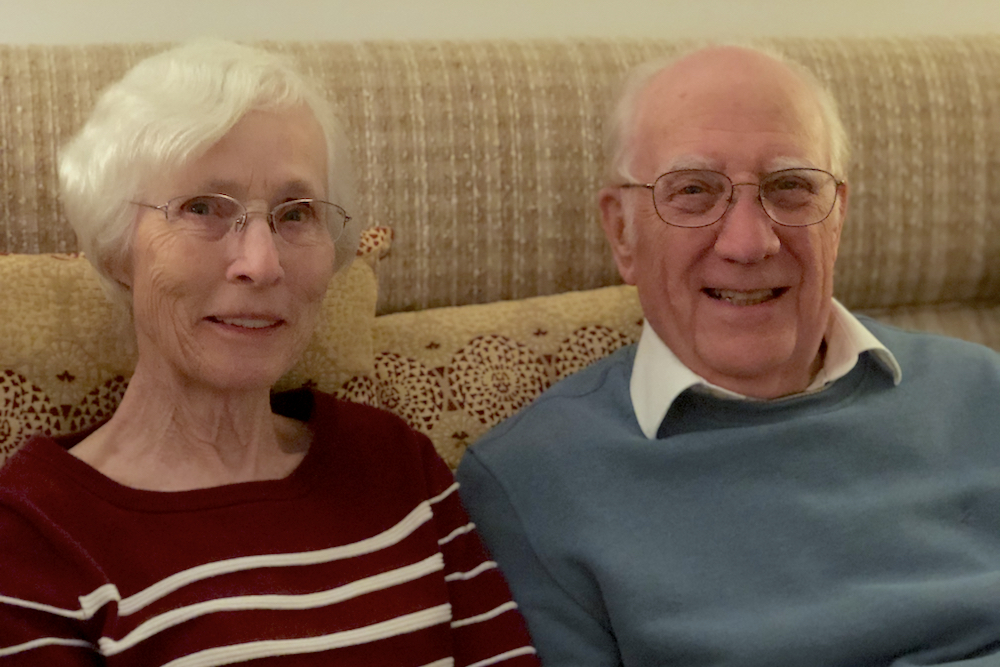
(Pixabay/S. Hermann & F. Richter)
"Light is not so much what you directly see as that by which you see everything else."
With gratitude to Franciscan Fr. Richard Rohr for that beautiful line from his latest book, The Universal Christ: How a Forgotten Reality Can Change Everything We See, Hope For, and Believe (Convergent Books, 2019), it seems a fitting frame for the season and for the era.
Rohr, as was the case with his contemporary, Benedictine Sr. Joan Chittister, has often been placed in the "dissenter" category. The two actually, it turns out, are as rigorously traditionalist as one might expect to find in the 21st century. We've been conditioned, over the past three to four decades, to think that the peculiar tick list of "do's" and "don'ts" which came to define "orthodoxy" constituted the tradition. In fact that list is neither traditional nor conservative and certainly not orthodox. It is an oddly modern and mostly American construct.
Rohr, on the other hand, digs deep into his Franciscan past and plumbs the tradition. He rescues it from the tight boundaries of the invented orthodoxy, releasing it to be both informed by and to inform contemporary reality. Consequently, he can make this rather Franciscan declaration:
Creation is the first and
Probably the final Bible,
Incarnation is already
Redemption,
Christmas is already Easter, and
Jesus is already Christ.
My sense from the book is that Rohr is virtually daring us to believe what we say, in so many words and circumstances. He implores us to join the intimacy of the babe in the crib with the eternal reality of Christ in time — in everything — and to understand Incarnation and revelation of the Christ as unending. It is, all at once, breathtakingly personal as well as beyond our imaginations.
Rohr has told reviewers that this is his final major work, the culmination of everything he's done over a lifetime of preaching, writing, ministering, contemplation. He believes the church over time lost the sense of the Universal Christ, became static in its understanding of Christ. His way to finding it begins and ends with: "Whatever evokes from you the flow of love is operating as Christ for you."
______

(Pixabay/Myriam Zilles)
It is fair, if difficult, to ask what one sees by this light. How to take stock at year's end? What is it in the day-to-day that we see, in this work of NCR no less, amid the current divisions and rancor we experience in both church and civil society?
Neither Rohr nor Chittister, to keep with two spiritual guides who have been important to NCR for decades, would advocate retiring from the fray.
People with an "incarnational worldview," writes Rohr, are those who "can see Christ in the disfigured and broken as much as in the so-called perfect or attractive. They can love and forgive themselves and all the imperfect things, because all carry the Imago Dei equally, even if not perfectly." Incarnational Christianity, he continues "is always 'hands on' religion and not solely esotericism, belief systems, or priestly mediation.”
Chittister, who recently completed a series of columns for NCR on the 12 steps of humility, has begun a new series of columns, evoking, shall we say, redeemed virtues fit for this era, among them anger, skepticism and bias. The contemplative life, as these two demonstrate, can be as misunderstood as tradition. It is not a ticket away from life's realities but rather a way deeper into them.
Advertisement
In her new book, The Time Is Now: A Call to Uncommon Courage, (Convergent Books, 2019), she addresses the role of tradition in modern prophetic action. Seeing the circumstances, for instance, of today's refugees, abandoned children and jobless adults as the point "exactly when the prophetic tradition bursts out anew and greening in us. That's when the prophetic comes in. We stop looking at the world through the filters of the last century and begin to look at the world through the very first century of the Tradition.”
It would be difficult to find a more "incarnational worldview," or a more sustained example of fidelity, than that of Maryknoll Fr. Bob McCahill, a priest who has been sending a Christmas letter to be printed in NCR since about 1984. It is a kind of annual epistle from Bangladesh, where he has ministered to a largely Muslim population. Earlier stories in NCR have described him as "the mother Teresa of Maryknoll." Now in his early 80s, McCahill, ministering in an area slightly smaller than Iowa and moving from location to location every three years since 1975, once described his work as "a ministry of presence.”
The heart of his commissioning in that region might be summed up in the words of one bishop's letter of assignment: "Serve the sick so that they may live. Show the respect which our Christian religion has for Islam and Hinduism. Explain to those who inquire about the reason for your lifestyle and good works. Contact the Christians in the area (a scattered few) and encourage them to live good lives."
In the language of today's pope, Francis, that would be a ministry of accompaniment. McCahill has been doing that for decades, in a place where the rewards for witness are not new parish halls or packed churches or a climb up the next rung of the ecclesial ladder. The witness, instead, is knowledge of a seed sown that one may never see germinate, the trust that the Gospel proclaimed is primarily the Gospel lived.
His life is an authentic living out of the deeply rooted traditions being surfaced anew by the likes of Rohr and Chittister. It is no accident that both Rohr and Chittister, in the maturity of their lives and careers, after all of the preaching and witnessing, settle on "light" as a way to talk about God. Light, as Chittister puts it, that can't be boxed or trapped or earned.
Light, an image and reality sufficient for this season and this era.
_____

Margie and Arthur Jones at home in Catonsville, Maryland
Holidays are a time for catching up with old friends, so allow me to present Arthur and Margie Jones. My wife Sally and I visited them recently in Catonsville, Maryland, in a retirement community that Arthur, former editor and publisher as well as longtime Washington bureau chief of NCR, describes as "a cruise ship that never leaves port."
It is the type of retirement one might expect of the irrepressible Arthur Jones. You may have noticed that he's produced Advent reflections based on "Laudato Si', On Care for Our Common Home" that you'll find at EarthBeat.
He's also published a novel (available on Amazon), The Jesus Spy, an account of Pontius Pilate's head of espionage who eventually gets caught up in a web of intrigue surrounding a Nazarene carpenter preaching against oppression.
Best wishes, all, from everyone here at NCR, for a blessed and light-filled Christmas.
[Tom Roberts is NCR executive editor. His email address is troberts@ncronline.org.]





